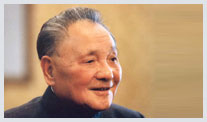|
Have fun, will travel 
|
| 2002-10-17 08:54:12 |
There may be no place like home, but these days, more and more Chinese want to get away from it all. They've been bitten by the travel bug, and with the rise in the standard of living, have the means to seek the treatment.
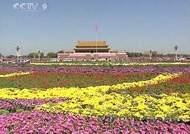 Chinese government has made great efforts to make the passport, a once much envied symbol of privilege, an international ID card for any average Chinese person.
Chinese government has made great efforts to make the passport, a once much envied symbol of privilege, an international ID card for any average Chinese person.
Pack your bags and let's go! This was on many people's minds especially during the recent National Day holiday. Nowadays, getting away from work is a prime choice for leisure time, whether for the public holidays, weekends or vacation.
Statistics show that more than 784 million Chinese visitors toured domestic scenic spots in 2001. This figure means that almost every city dweller and half of the rural population went touring within the country last year.
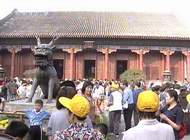 "People now have much more money and time. So now they can go travelling during their leisure time or when they want to relax. And more business trips have also contributed to this domestic tourism boom," said Sui Jiang, deputy manager of Domestic Dept.of CITS.
"People now have much more money and time. So now they can go travelling during their leisure time or when they want to relax. And more business trips have also contributed to this domestic tourism boom," said Sui Jiang, deputy manager of Domestic Dept.of CITS.
For most city dwellers, they prefer to visit places with unique natural scenery. Some less well-known spots in China's vast western territory are gaining in popularity. The unspoiled natural landscape and unique ethnic flavors of Tibet Autonomous Region, Guizhou and Yunnan provinces attracted more visitors than last year. Some of them are content with day-trips to the city's outskirts or just relaxing at home.
For most people living outside of Beijing, visiting the capital is a must. The city's rich history spanning hundreds of years and its status as the country's political center are considered the main attractions.
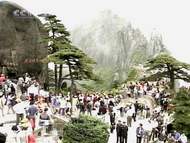 "I'm from Xinjiang Uygur Autonomous Region. I have seen the capital hundreds of times, but only in TV programs! Witnessing the flag-raising ceremony has been my childhood dream. Now it has come true," said Zhang Xiaoping.
"I'm from Xinjiang Uygur Autonomous Region. I have seen the capital hundreds of times, but only in TV programs! Witnessing the flag-raising ceremony has been my childhood dream. Now it has come true," said Zhang Xiaoping.
Over the past three years, China's three "golden week" holidays, which include National Day, Labor Day and the Lunar New Year have reportedly each generated at least 3.6 billion US dollars in tourism revenue.
Yet the influx of tourists during these golden weeks have meant larger crowds. Take Beijing's Palace Museum known as the Forbidden City for example. More than 90,000 people, from the capital city and other parts of the country, chose to spend the second day of the recent National Day holiday there. This means that on that day the imperial palace received three times the normal amount of visitors. Over-crowdedness is a big headache everywhere.
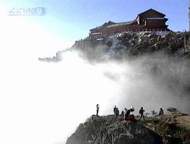 "There might be times and places where, for tourists, the golden weeks mean price hikes and poor travelling conditions. I think that many areas such as transportation and tourist receiving capacities are still unprepared for the travel frenzy. Some tourists have become more rational nowadays. Those with paid annual leave, might choose the time to travel especially after the peak season to really relax," said Sui Jiang.
"There might be times and places where, for tourists, the golden weeks mean price hikes and poor travelling conditions. I think that many areas such as transportation and tourist receiving capacities are still unprepared for the travel frenzy. Some tourists have become more rational nowadays. Those with paid annual leave, might choose the time to travel especially after the peak season to really relax," said Sui Jiang.
“Where are you going for the holidays?” seems to be the hottest question on everyone's lips. With week-long public holidays and more disposable income at their hands, more Chinese people are choosing travel as the ideal leisure activity. Despite the downsides such as overcrowding and higher prices, the lure of a change of scenery is hard to resist.
|
|









